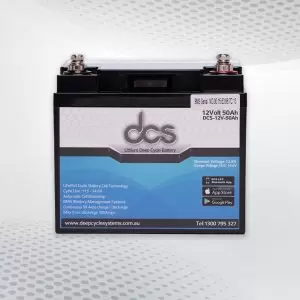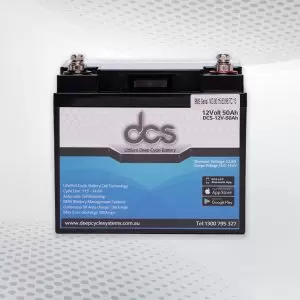If you are a boat owner, you know how important it is to have reliable and durable cranking batteries. Upgrading to lithium cranking batteries offers numerous advantages over traditional lead acid batteries, making them a great choice for your boat. From their lightweight design to superior performance, lithium batteries provide numerous benefits you won’t want to miss out on.
They Are Environmentally Friendly
Lithium batteries are gaining popularity in marine applications as the world becomes increasingly concerned with sustainability and the environment. Unlike traditional lead-acid batteries, lithium batteries don’t contain harmful heavy metals like lead and mercury. In addition, they can be recycled at the end of their useful life, reducing waste and minimizing their environmental impact.
But the benefits don’t end there. Because lithium batteries are more energy-efficient than lead-acid batteries, they require less charging and use less power overall. It means less strain on your vessel’s electrical system and less fuel burned to charge your batteries. And, since they have a longer lifespan, you’ll need to replace them less frequently, reducing your environmental footprint.
If you’re concerned about sustainability and the environment, a lithium cranking battery is an excellent choice for your marine application. Not only are they better for the planet, but they’ll also save you money and reduce the hassle of battery maintenance. Plus, their advanced technology will provide reliable performance and power whenever you need it.
Lithium Starter Batteries Have A Longer Life Cycle
One of the major advantages of using lithium starter batteries for marine applications is their longer life cycle. It can cause your battery to fail sooner than expected, leading to costly replacements. Traditional lead-acid batteries tend to lose their capacity over time due to sulfation, a process where lead sulfate crystals build up on the electrodes, reducing the battery’s ability to hold a charge.
Most lithium batteries have a lifespan of over ten years, while a lead-acid battery will typically last only two to four years. On the other hand, it have a longer lifespan and better overall capacity retention. They do not suffer from sulfation, which means that they will not lose their performance over time, and they can be recharged many more times than lead-acid batteries.
This longer life cycle is a significant advantage for boaters who rely on their batteries to start their engines and run their onboard systems. It means they can rely on their batteries for extended periods, reducing the need for frequent replacements and associated costs. It also reduces the number of batteries that end up in landfills, making lithium batteries a more sustainable choice.
Moreover, lithium starter batteries’ longer lifespan means they are a cost-effective choice in the long run. Though they are more expensive initially, they will last much longer than traditional batteries and provide significant cost savings over their lifetime. So, investing in lithium batteries is a smart move for your boat’s performance and your wallet and the environment. thstand Harsh Weather Conditions
thstand Harsh Weather Conditions
One of the major benefits of lithium batteries for marine applications is their ability to withstand harsh weather conditions. Traditional lead-acid batteries can suffer reduced performance or failure when exposed to extreme heat, cold, humidity, or saltwater spray. In contrast, lithium batteries are built to handle these conditions with ease.
One reason for this is the robust construction of lithium batteries. They are designed to be highly resistant to shock, vibration, and impact damage, making them a great choice for boaters who regularly encounter rough water. In addition, the cells are sealed to prevent moisture from entering and causing damage.
Another advantage is that lithium batteries have a wider operating temperature range than lead-acid batteries. They can function at temperatures as low as -20 degrees Celsius and as high as 60 degrees Celsius without any significant performance loss. It is particularly important for boaters living in extreme weather areas.
Finally, lithium batteries are not susceptible to the same corrosion issues as lead-acid batteries. Saltwater spray can cause lead-acid batteries to degrade quickly, reducing their lifespan and reliability. In contrast, lithium batteries are much less affected by corrosion, making them a great choice for saltwater boaters.
Lithium Rv Batteries Require Less Maintenance
When powering your RV, you want a battery that won’t give you headaches. That’s where lithium RV batteries come in. Not only do they have a longer life cycle and weigh less, but they also require less maintenance than traditional lead-acid batteries.
Lead-acid batteries must be constantly topped off with distilled water to ensure proper functioning, and the acid can corrode the terminals over time. Lithium RV batteries, however, are sealed and require no maintenance whatsoever. You can forget about checking water levels and dealing with corroded terminals. It means less hassle and more time enjoying your RV travels.
Additionally, it can handle a higher number of charge cycles than lead-acid batteries. It means they won’t need to be replaced as often, further reducing maintenance costs. Using lithium batteries leads to fewer maintenance tasks and more peace of mind while on the road.
They Perform Better In Cold Conditions
Marine enthusiasts who love exploring even during winter can rest assured that their lithium batteries won’t disappoint them. It can perform much better even in sub-zero temperatures than traditional lead-acid batteries that tend to lose their power quickly in cold conditions.
Lithium batteries use advanced technology that is not affected by low temperatures. As a result, boat owners can easily start their engines in the cold winter months without worrying about battery failure. Moreover, lithium batteries are less prone to freezing, which can happen with traditional lead-acid batteries, as they tend to lose their ability to hold a charge once temperatures dip.
They are also much safer and more reliable in cold weather conditions. They are designed with a built-in protection system that ensures they won’t explode or catch fire if exposed to extreme temperatures. It means boat owners can have peace of mind knowing they won’t experience any dangerous mishaps on their boating expeditions.
Overall, performing better in cold conditions is one of the many benefits of using lithium cranking batteries. Not only are they more reliable and safer, but they also ensure that marine enthusiasts can explore their favourite destinations regardless of the weather conditions. So, if you’re planning your next boating trip, consider investing in lithium batteries for your boat, and enjoy worry-free boating throughout the year.
Lithium Marine Batteries Have A Higher Voltage
One of the key benefits of using lithium marine batteries for marine applications is that they have a higher voltage than traditional lead-acid batteries. It means they can provide more power to the engine and other onboard electronics. Many lithium batteries have a voltage of 12.8 volts, which is higher than the typical 12 volts of a lead-acid battery.
The higher voltage allows them to deliver more consistent and reliable performance, even when under heavy loads. It is particularly important for marine applications, where a dependable battery is crucial for safety and functionality.
They can maintain a more stable voltage output over time. It is due to the fact that they do not experience the same voltage drop that lead-acid batteries do as they discharge. As a result, it can provide a more steady stream of power, ensuring that all onboard systems continue to operate as intended.
Overall, the higher voltage of batteries makes them an excellent choice for powering a wide range of marine applications. From powering the engine to running electronics and other onboard systems, these batteries offer consistent and reliable performance that can help to enhance safety, functionality, and efficiency on the water.
They Weigh Less
Lithium batteries are known for their lightweight design, which makes them ideal for marine applications. These batteries typically weigh 60-70% less than traditional lead-acid batteries, making them easy to handle and install. Their lightweight design also reduces the overall weight of the boat, improving its fuel efficiency and performance.
The reduced weight of batteries also allows for more space and flexibility in boat design. With a smaller and lighter battery, boat manufacturers can allocate more space for other necessary equipment or amenities.
Moreover, the lightweight design of batteries makes them perfect for recreational boaters who want to optimize their performance and enjoyment on the water. With less weight in the boat, there is less drag and resistance on the water, leading to faster speeds and more efficient boating experiences.
Conclusion
Overall, it’s clear that using lithium cranking batteries for marine applications is the way to go. Not only are they more environmentally friendly than traditional lead-acid batteries, but they also offer a longer life cycle and require less maintenance. Plus, their ability to withstand harsh weather conditions and perform better in cold temperatures makes them a smart choice for marine enthusiasts who want a reliable and durable battery. With a higher voltage and lighter weight, it truly provide a sustainable and efficient solution for all your marine battery needs. Upgrade to lithium and experience the benefits for yourself.



